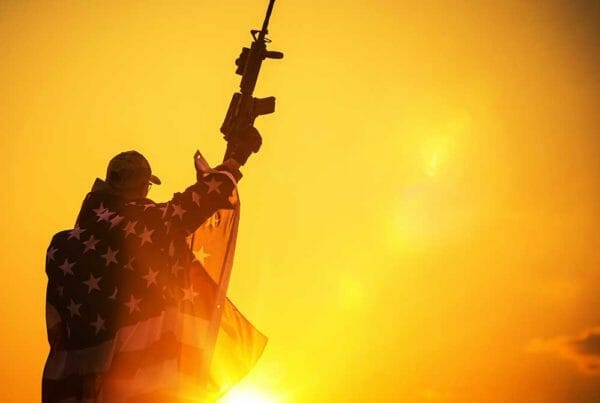Opinon

In “The Modern Militia,” a paper by George Mason University Associate Professor Robert Leider provides a comprehensive reevaluation of the militia’s role in the U.S. defense architecture, challenging the prevailing view that sees the militia as an anachronistic element of a bygone era. This article digs deeper into Leider’s analysis, emphasizing its implications for today’s defense strategies and the fundamental principles of American governance.
Leider begins by clarifying a commonly misunderstood historical narrative: “Twentieth-century legal reforms of the military have obscured the distinction between an ‘army’ and a ‘militia’” (Leider, 2023). For the Framing generation, these were distinctly separate entities, with the militia comprising nonprofessional soldiers who integrated seamlessly into civilian life. This historical perspective is crucial because it informs current debates about the military’s role in society and the balance of power between the state and the federal government.
The core of Leider’s argument revolves around the functions of the modern militia, which he claims are fundamentally unchanged from those envisioned by the Founders: connecting the military to civilian communities, supplementing professional forces during emergencies, and aiding civil authorities in domestic law enforcement. Leider asserts, “nonprofessional soldiers perform three principal tasks, which are similar to those that militiamen performed at the Framing” (Leider, 2023). This continuity highlights the enduring relevance of the militia system as a critical component of national defense that complements the professional military.

Importantly, Leider discusses the militia’s domestic role, which has often been contentious yet constitutionally vital.
He cites historical instances, such as the role of the National Guard in the Capitol riot of January 6, 2021, to illustrate how “nonprofessional soldiers provide local forces for domestic peacekeeping” (Leider, 2023). This function is particularly significant because it aligns with Framing-era norms against the use of professional military for domestic law enforcement, emphasizing a military force that is by the community and for the community.
Leider also addresses misconceptions about the federalism debate related to the militia. He clarifies that the debate was less about federal versus state control and more about the nature of the forces involved: “The core of the Framing-era debates involved whether to professionalize the military” (Leider, 2023). This insight is crucial for understanding the constitutional balance of power and the role of state versus federal authority in military affairs.
For today’s readers, particularly those supportive of Second Amendment rights and wary of a too-powerful federal government, Leider’s analysis reaffirms the militia’s role as a safeguard against tyranny. The maintenance of a militia that is deeply rooted in the civilian population serves as a check on the professional military and aligns with the constitutional goal of a free, self-governing populace.
Go Militia
Wrapping up, Leider’s work invites us to reconsider the modern militia not as a redundant relic, but as a vibrant and essential component of our national defense strategy. His detailed historical analysis and current application provide a compelling case for the continued importance of this institution in balancing the power of the professional military and ensuring that our armed forces remain true to democratic principles and closely connected to the people they serve.
You can download and read his paper here: “The Militia and the Army in American Constitutional Law by Robert Leider.“


If China was to invade tomorrow all these blue shit holes denying the people a militia will be the first to fall .
Outlawed here in orgoneistan!!!! 250,000 fine and 10 years if you are caught. No training, no shooting practice in a group, no talking on the phone to fellow X militia friends, no magazines on warfare or anything to do with militia’s.
I wonder when Kotex is going to mandate burning books.
The weaker the Active forces and Guard, the more important the militia. It will take Trump years to rebuild the armed forces, USMC aside. During that time, the Russia, Iran, China, Norco alliance can do much harm. The increased pay for junior enlisted will help, but we need more soldiers, etc. who are in because of patriotism, rather than $.
“…ensuring that our armed forces remain true to democratic principles and closely connected to the people they serve.”
More appropriately “republican principles”.
Anymore, “democratic principles” has taken the connotation of “socialist principles”. Much like the word “progressive” has taken on a leftist meaning of “politically advancing to socialist tyranny”.
In my State we have the Militia codified into law. The Mayor commands the Militia as the Home Guard.